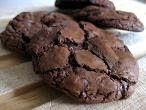One little thing which struck me was a reference in one of the books I read to a Gallup/Daily Telegraph survey which asked a representative sample of people what their perfect meal would be if money was no object (referenced in John Burnett, Plenty and want: a social history of diet in
Sherry
Tomato soup
Sole or roast chicken, with roast potatoes, peas and sprouts
Red or white wine
Trifle and cream
Cheese and biscuits and coffee.
And this is what they said in 1973:
Sherry
Tomato soup or prawn cocktail
Steak, roast/chipped potatoes, peas, sprouts and mushrooms
Red or white wine
Trifle or apple pie and cream
Cheese and biscuits, coffee, liqueurs or brandy.
I was amused, and perhaps surprised at how similar the two lists were, and also how familiar they still look (I couldn’t find an equivalent survey for today, unfortunately). I think that sherry would be probably have fallen off the list by now, and prawn cocktail is fashionable in a bit of a retro way, but I’m pretty sure that a roast meal, potatoes and veggies would still be very popular. Apparently our favourite dish as a nation is now chicken tikka masala, which certainly reflects a change in cuisine and immigration since the 1970s, but cheese and biscuits, wine, trifle, apple pie…I bet most Brits still have a soft spot for them. The Scientist would certainly be very happy with the 1940s meal (his absolute favourite meal ever is Christmas dinner, closely followed by a Sunday roast). I’m always really intrigued about national cuisines, and food preferences so this list really tickled my interest. Of course it wouldn’t make me very happy, but I actually couldn’t decide what I would choose. I didn’t have a traditional British foodie upbringing – I had never heard of pigs in blankets until I met The Scientist, nor had I ever had mushy peas or trifle, and I’ve never in my life eaten a steak or a bacon sandwich. There’s so much choice around now that we’re spoiled in a way we’ve never been before. While I pondered the question though, I made a treat for my retro foodie Scientist:




1 comment:
You are lucky to be paid to research food history - and how interesting it sounds - I was curious about if people were given multiple choice or open answered questions about their favourite foods. I wonder if sprouts would still make the list!
Post a Comment